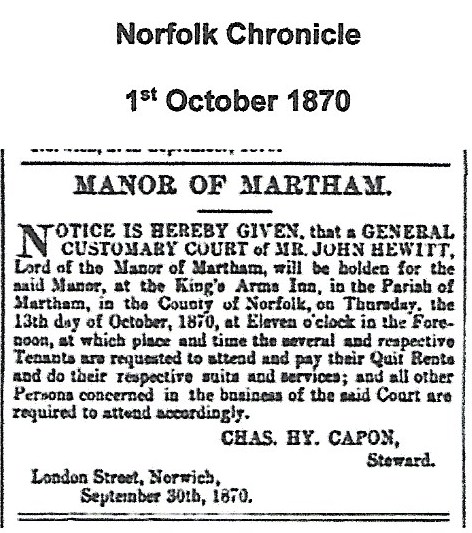One of the most significant historical magazines in the United Kingdom, and especially in Norfolk, is The Norfolk Chronicle. Established in 1761, it has long been a source of local, regional, and global news, and its sites reflect the changing cultural, social, and political landscape of the place. With a rich history spanning over two decades, the Norfolk Chronicle played a vital role in chronicling the life, activities, and transformations of Norfolk, making it a key player in the development of the city’s literary identity.
In this article, we will look into the historical relevance of the Norfolk Chronicle, its effect on the Norfolk society, its evolution over time, and its ongoing relevance in the age of electronic press. We will also look at significant milestones in the publishing story of the book and why it continues to be a valuable archival tool for both local historians and researchers.
Origins of the Norfolk Chronicle

First Time: 1761 and the Birth of a Paper
The Norfolk Chronicle was founded in 1761 during a period of great shift in Britain, both politically and economically. Papers were then gaining an increasingly significant role in conversation, giving readers accessibility to both local and global information.
Unlike many of its modern magazines, the Norfolk Chronicle took a different approach. Rather than focusing only on local politics, it sought to strike a balance between local, regional, and international information, giving Norfolk people a wide view on recent events. This strategy helped the news quickly establish a following, particularly among those who wanted to stay informed about both their immediate environment and the universe as a whole.
The Founding Vision
The Norfolk Chronicle was founded by the original readers in order to make it a trustworthy and trustworthy source of information. First copies covered a range of issues, including social developments, agricultural changes, business information, and human interest stories. The editors put emphasis on accuracy and honesty, establishing trust among readers who relyed on the newspaper as their primary source of information.
The Norfolk Chronicle‘s goal was to be a voice for the area, giving local businesses and politicians a platform to speak directly with their audience. The Norfolk newspaper quickly gained a following among Norfolk residents, and its expanding circulation reflected the need for high-quality local news.
Important Historical Moments from the Norfolk Chronicle
Covering significant local and national events
The Norfolk Chronicle has witnessed some of the most significant historical moments throughout its history. The Norfolk population was crucially informed from the start of the Industrial Revolution to the Napoleonic Wars and beyond.
The Industrial Revolution
The Norfolk Chronicle was there to document the rapid changes that the British Industrial Revolution caused. Norfolk, with its agricultural economy, was impacted by industrialization in ways that shaped its future. The newspaper reported on innovations in agriculture, changes in trade and commerce, and the rise of new industries, helping local farmers and business owners navigate these changes.
Articles on new equipment, methods for boosting crop yields, and the effects of technological advancements on local communities were frequently featured. These insights were critical in a time when Norfolk’s economy was undergoing significant transformation.
The Napoleonic Wars
The Norfolk Chronicle covered the Napoleonic Wars in great detail, keeping readers informed about both the military campaigns conducted abroad and the war’s effects in the United States. The newspaper had a significant role in shaping public opinion during this time, and it was marked by high public interest in political and military affairs.
Local events related to the war, such as recruitment drives, the return of soldiers, and public ceremonies, were covered in detail. Additionally, the Norfolk Chronicle published letters from soldiers and reports on war casualties, which resonated with readers who had loved ones fighting overseas.
Reporting on the local Norfolk life
The Norfolk Chronicle covered significant national and international events, but its real strength was in its thorough analysis of local Norfolk life. This focus made the newspaper a trusted voice in the community, as it highlighted the day-to-day affairs of the region.
Rural Life and Agricultural Reports
Norfolk, being predominantly rural, has long had an economy tied to agriculture. Farmers were regularly updated with farmland news regarding market prices, crop conditions, and new farming technology innovations from The Norfolk Chronicle. These reports were crucial to the region’s agricultural community, helping them make informed decisions about their livelihoods.
The newspaper also documented local fairs, livestock auctions, and agricultural shows, reflecting the rhythms of rural life. By documenting these events, the Norfolk Chronicle largely assisted in bringing together the farming community and keeping it informed about the most recent developments.
Local Politics and Social Issues
The Norfolk Chronicle also served as a forum for discussion of local politics and social issues in addition to its agricultural reporting. It covered elections, town meetings, and public debates, giving readers insight into the workings of local governance. The newspaper also reported on issues such as public health, education, and infrastructure, all of which were important to the development of Norfolk as a region.
The Norfolk Chronicle frequently published letters to the editor, giving readers a voice in local matters. Residents were able to participate in the public debate and voice their opinions or support for a variety of issues thanks to this level of engagement.
The Evolution of the Norfolk Chronicle
Technological Advancements in Printing
Like all newspapers, the Norfolk Chronicle evolved alongside advancements in printing technology. When it was first established, printing presses were labor-intensive, limiting the number of copies that could be produced each day. However, with the introduction of steam-powered presses in the 19th century, the Norfolk Chronicle was able to expand its circulation, reaching more readers than ever before.
As printing technology continued to advance, the newspaper adapted to new methods of production, allowing for faster printing and more detailed coverage. This improved efficiency made it possible for the Norfolk Chronicle to publish more up-to-date reports, especially when it comes to significant national or local events.
The Shift to Digital Media
With the rise of the internet and digital media, the Norfolk Chronicle—like many traditional print newspapers—faced new challenges. Newspapers had to adapt to a digital-first world due to the demand for instantaneous news and the expansion of online publications. The Norfolk Chronicle embraced the digital era, setting up an online presence, and providing access to its archives to people all over the world.
The Norfolk Chronicle continues to be published in both print and digital formats today, keeping its legacy intact in the modern era. The newspaper’s move to digital media has also extended its reach beyond Norfolk and given it a wider readership.
Read also: Old Norfolk Newspapers: Preserving Norfolk’s Rich History
The Norfolk Chronicle’s significance in historical research
Archiving Norfolk’s Past
One of the most significant historical collections available to those researching Norfolk’s past is The Norfolk Chronicle. With its thorough analysis of political, economic, and social events, historians gain valuable insights into how Norfolk has changed over the years. The newspaper’s archives offer researchers an in-depth view of everyday life, major historical events, and the broader societal trends that have shaped the region.
These archives are especially important for genealogists, historians, and researchers who rely on primary sources to trace family histories, study social movements, and understand the local impact of national and international events.
Digital Preservation and Accessibility
Significant efforts have been made recently to digitize the Norfolk Chronicle‘s older issues, making them accessible to a wider audience. Anyone who is interested in Norfolk’s history can use digital archives, which make it possible for them to easily search through centuries of material.
Future generations will be able to explore Norfolk’s rich history in a way that is both accessible and sustainable by keeping the Norfolk Chronicle digitally preserved. These efforts highlight how crucial it is to keep the voices and stories that the Chronicle contains alive.
Conclusion
The Norfolk Chronicle stands as more than just a local newspaper—it is a vital record of Norfolk’s history. Since its founding in 1761, it has been a witness to centuries of social, economic, and political changes. The Norfolk Chronicle has a singular place in the history of the area, from documenting daily life in Norfolk residents to providing essential coverage of global events.
In today’s digital world, the Chronicle continues to evolve, ensuring that the stories of Norfolk’s past remain accessible to all. Its archives are a treasure trove of information that offer a unique perspective on those who witnessed the region’s most pivotal events.
The Norfolk Chronicle will continue to serve as a pillar of regional journalism and a testament to the influence of the written word on our understanding of history as Norfolk Publications continues to share and preserve these historic treasures.
 Norfolk Web Publications Web Publications in Norfolk!
Norfolk Web Publications Web Publications in Norfolk!

